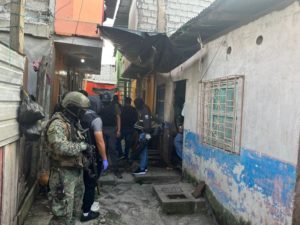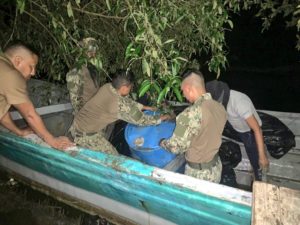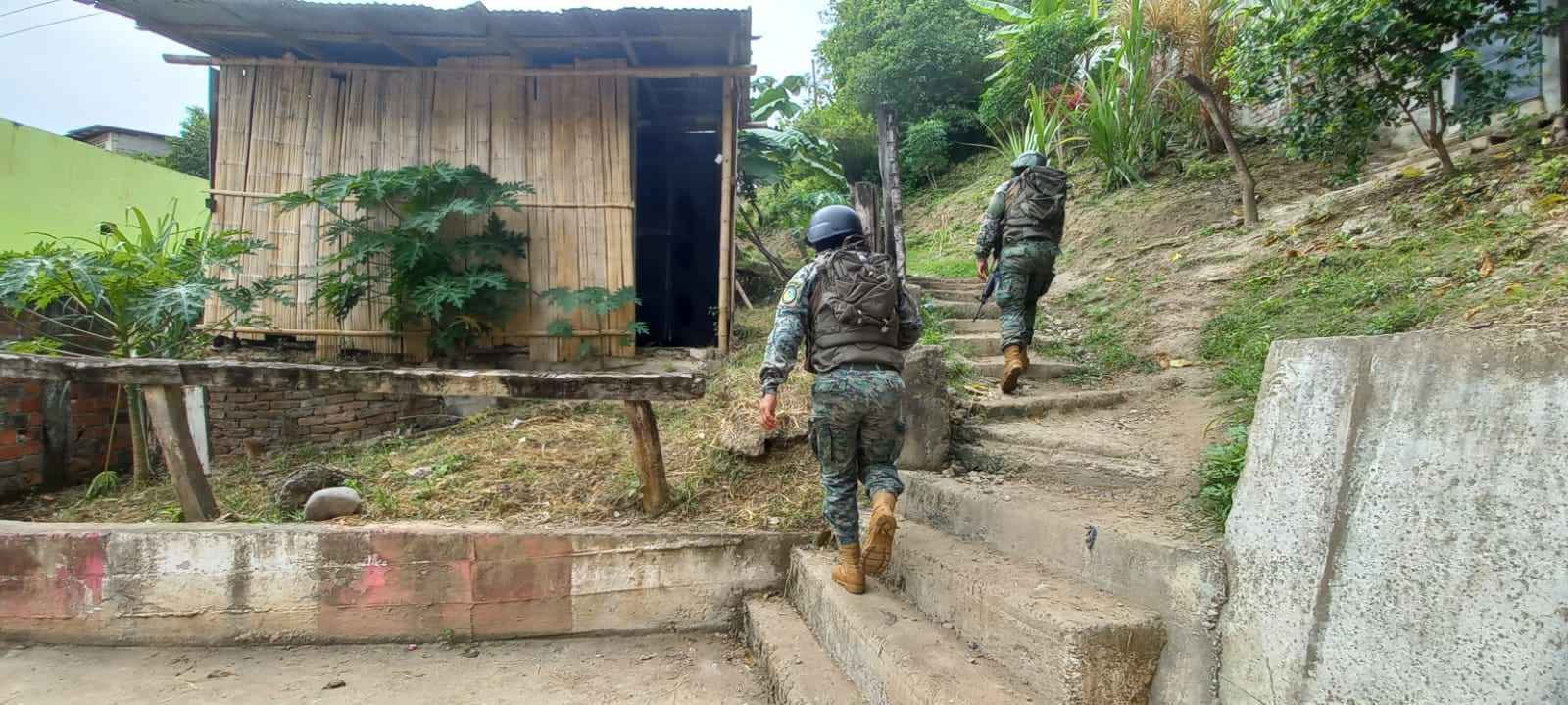A little more than a month after beginning operations, Joint Task Force (JTF) Esmeraldas, tasked with combating and reducing insecurity in the Ecuadorian province of the same name, on the border with Colombia, has been showing positive results.

Among its achievements are the seizure of several weapons, shotguns, revolvers, ammunition of different calibers, explosive devices, and cocaine, the Governor’s Office of Esmeraldas indicated via Twitter. The members of the new force — service members, police officers, representatives of the National Customs Service and the Attorney General’s Office — also found and seized chemical precursors for the manufacture of drugs or explosives, such as thousands of liters of fuel and acetone, among others.
On July 11, JTF Esmeraldas also reported the apprehension of a Colombian citizen in the canton of San Lorenzo during an operation of “surveillance and offensive reconnaissance.” According to Ecuadorian newspaper La Hora, the man was reportedly a member of a Colombian irregular armed group, although authorities did not confirm which particular group.
The province of Esmeraldas borders the Colombian department of Nariño, which is characterized by abundant vegetation favorable for the establishment of Colombian narcotrafficking groups that operate in the area, but difficult for authorities to access. Large coca plantations extend into the neighboring country’s territory, feeding the illegal drug trafficking industry that processes tons of drugs, and which uses Ecuadorian territories as exit routes, reported television network Ecuavisa.
Criminal activities associated with drug trafficking have made this province one of the most dangerous and unsafe in the country. Attacks with explosives, murder for hire, violent deaths, and extortion are a constant for its inhabitants, leading the Ecuadorian government to declare Esmeraldas a special security zone on June 2. The following day, JTF Esmeraldas began operations with some 4,000 uniformed personnel.
Minister of the Interior Patricio Carrillo, at the official launch ceremony of JTF Esmeraldas stated that “the indicators of insecurity, violence, and insurgency in this province are unreasonable facts that can be seen in the streets and are also present in prisons.” He added that the force was created to confront these crimes “with an investigation and intelligence structure capable of anticipating the presence of organized crime from the border to the interior of the national territory,” Ecuadorian television network RTS reported.

Ecuadorian Army Brigadier General Alexander Levoyer, JTF Esmeraldas commander, said that violence has begun to decrease with the presence of the force, reported La Hora. The violent groups have “frozen; they are quiet, they are watching us work to change their patterns of behavior; but they also know that the State is present and acting,” Brig. Gen. Levoyer told La Hora, adding that some of the criminal groups have moved to other provinces.
The Armed Forces estimate that JTF Esmeraldas will remain in operation between eight months to a year, reported La Hora. “We want to guarantee that the province lives and develops in peace and security,” Brig. Gen. Levoyer said.
Ecuador’s President Guillermo Lasso, during his participation in the Summit of the Americas in early June, conveyed the urgent need for more support from the U.S. government in security issues and in the fight against organized crime and expressed his wish for a “Plan Ecuador,” similar to the Colombia-U.S. bilateral agreement called Plan Colombia, conceived in 1999 to end the internal armed conflict in the South American country and create an anti-narcotics strategy, among other objectives.









